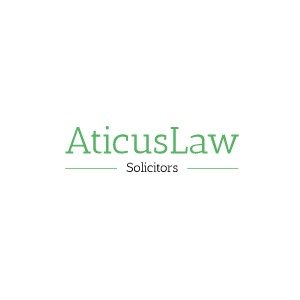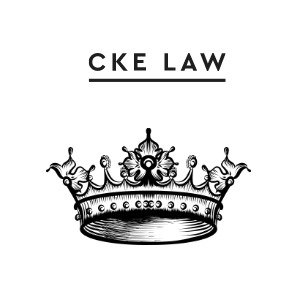Best Bankruptcy & Debt Lawyers in Manchester
Share your needs with us, get contacted by law firms.
Free. Takes 2 min.
List of the best lawyers in Manchester, United Kingdom
United Kingdom Bankruptcy & Debt Legal Articles
Browse our 1 legal article about Bankruptcy & Debt in United Kingdom written by expert lawyers.
- Debt Collectors in the UK: Stop Harassment and Verify Debt
- - Debt collectors must follow FCA rules. You can set contact limits, insist on writing only, and complain if they ignore this. Aggressive or frequent contact can be harassment under UK law. - Verify every debt before paying. Use a prove-it letter and, for credit agreements, a Consumer Credit Act... Read more →
About Bankruptcy & Debt Law in Manchester, United Kingdom:
In the United Kingdom, including Manchester, Bankruptcy & Debt Law involves legislative provisions dealing with the inability of individuals or companies to pay their debts. The insolvency law in the UK includes personal bankruptcy, company insolvency, and debt relief orders, among other things. These laws aim to assist parties who are unable to meet their financial obligations by providing them with a legal mechanism to either resolve, restructure, or write-off their debts.
Why You May Need a Lawyer:
Managing debt and considering bankruptcy are complex situations that require understanding intricate laws and regulations. You may need a lawyer to educate you on your rights and options, help negotiate with your creditors, or guide you through bankruptcy proceedings. A lawyer can also help in identifying alternatives and devise a debt management strategy.
Local Laws Overview:
In the UK, the main pieces of legislation governing insolvency and bankruptcy are the Insolvency Act 1986 and the Enterprise Act 2002. The laws stipulate the procedures for declaring bankruptcy, the implications of bankruptcy, as well as the roles and responsibilities of appointed administrators. Bankruptcy stays on your record for six years from the date it’s approved, which may affect your ability to get credit. Furthermore, it’s important to note that certain debts, such as student loans and court fines, cannot be written off through bankruptcy.
Frequently Asked Questions:
1. What's the difference between bankruptcy and insolvency?
Bankruptcy is a form of insolvency and applies only to individuals. Insolvency, on the other hand, is a broader term that can refer to both individuals and companies. A person or company is insolvent when they cannot pay their debts when they're due or their liabilities surpass their assets.
2. Can all debts be included in bankruptcy?
Most debts can be included, but there are exceptions. For example, court fines, student loans, some benefits overpayments, and child maintenance arrears cannot be included.
3. How long does bankruptcy last?
In the UK, bankruptcy usually lasts for one year, but it stays on your financial record for six years.
4. What are the alternatives to bankruptcy?
Lower-cost options may include a Debt Relief Order (DRO), an Individual Voluntary Arrangement (IVA), or negotiating a payment plan with your creditors.
5. Will I lose my assets in bankruptcy?
Bankrupcy may result in the loss of your assets, including property and vehicles. However, essential household items and tools you need for your trade aren't usually included.
Additional Resources:
The Insolvency Service, a Governmental body, provides free advice and publications about bankruptcy. Citizens Advice Bureau and National Debtline also offer free, confidential and independent advice on how to deal with debt problems.
Next Steps:
If you're dealing with severe debt issues and considering bankruptcy, it's vital to first seek legal counsel. Professional solicitors in Manchester specializing in bankruptcy and debt law can provide valuable advice tailored to your unique situation. They can assist in understanding your legal position, the implications of bankruptcy, and potential alternatives, helping you make an informed decision about the best course of action for you.
Lawzana helps you find the best lawyers and law firms in Manchester through a curated and pre-screened list of qualified legal professionals. Our platform offers rankings and detailed profiles of attorneys and law firms, allowing you to compare based on practice areas, including Bankruptcy & Debt, experience, and client feedback.
Each profile includes a description of the firm's areas of practice, client reviews, team members and partners, year of establishment, spoken languages, office locations, contact information, social media presence, and any published articles or resources. Most firms on our platform speak English and are experienced in both local and international legal matters.
Get a quote from top-rated law firms in Manchester, United Kingdom — quickly, securely, and without unnecessary hassle.
Disclaimer:
The information provided on this page is for general informational purposes only and does not constitute legal advice. While we strive to ensure the accuracy and relevance of the content, legal information may change over time, and interpretations of the law can vary. You should always consult with a qualified legal professional for advice specific to your situation.
We disclaim all liability for actions taken or not taken based on the content of this page. If you believe any information is incorrect or outdated, please contact us, and we will review and update it where appropriate.
Browse bankruptcy & debt law firms by service in Manchester, United Kingdom
Manchester, United Kingdom Attorneys in related practice areas.









